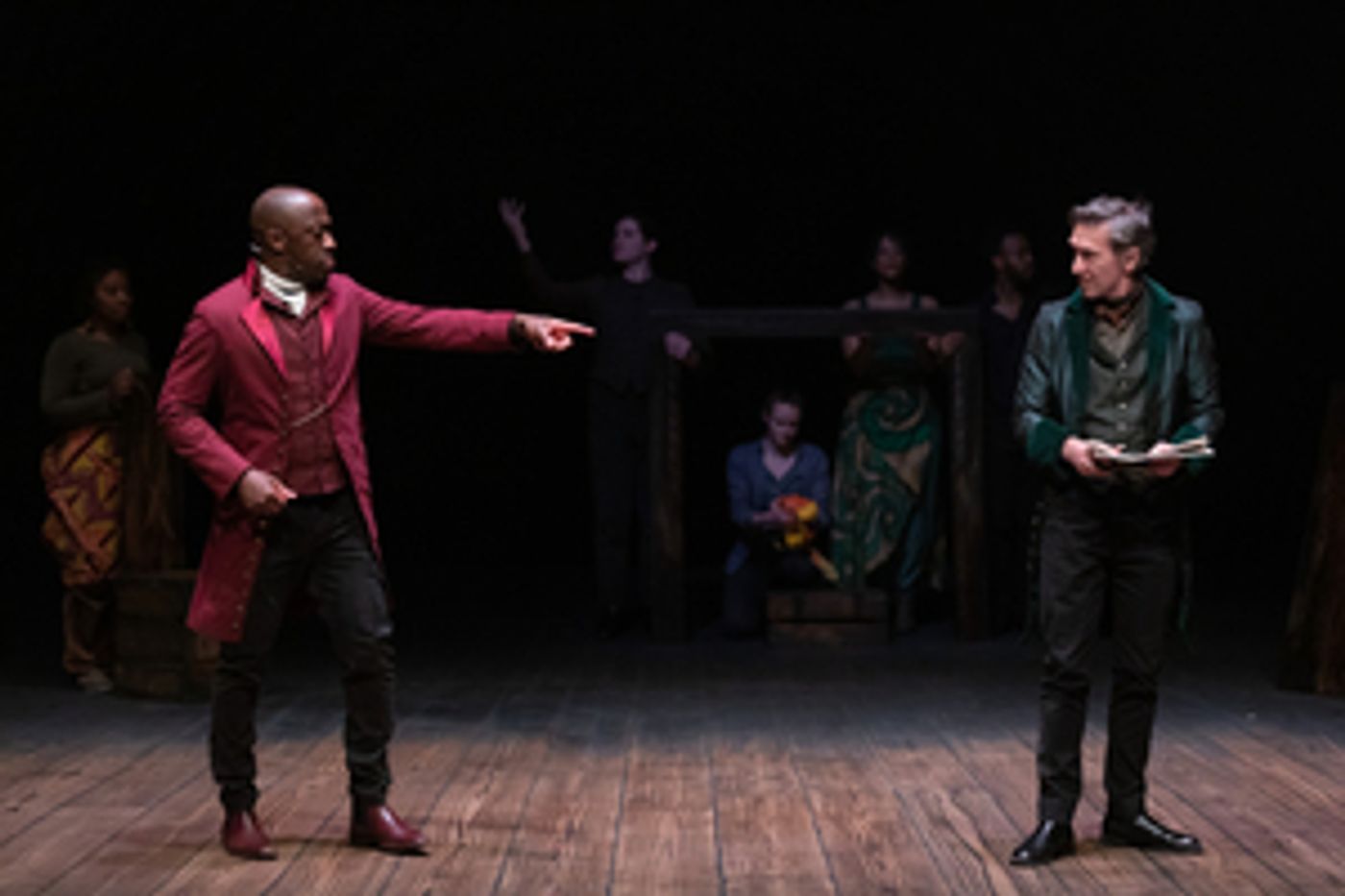Review: THE MEANING OF ZONG, Barbican Theatre
Giles Terera brings a shameful chapter in British history to the stage

 What it this "Zong" of which you speak?
What it this "Zong" of which you speak?
A reasonable question, but (as a framing device in a bookshop makes clear) one rooted in, indeed conditioned by, decisions made about whose stories get told and why. (There's an echo of the refrain, "Who lives, who dies, who tells your story?" - and writer, Giles Terera, took inspiration for his debut play from his Olivier Award-winning role as Aaron Burr in Hamilton). In The Meaning Of Zong, he reclaims the blood that binds the stones in the buildings all around the Barbican Theatre, many financed, like so many, many others in the UK, by the vast profits of the slave trade, and tells a British story, one that resonates today at home and abroad.
On the face of it, the case brought by insurers in 1781 was a simple one - was it a matter of necessity to dispose of cargo on the high seas and, in consequence, pay out on the policy? Self-evidently, English Law, as ever protective of property rights enforced through privity of contract, must prevail.
Gustavus Vassa, a black man in London who had bought his freedom, discovered a newspaper report of a challenge to the ruling in favour of the ship owners, but saw that the story is not one of property rights, but human rights - the cargo tossed overboard were 133 Africans en route to be sold as slaves in Jamaica. With the help of anti-slavery activist, Granville Sharp (Tristan Sturrock) and shorthand transcriber, Annie Greenwood (Rona Morison), he insists on telling the story of the 132 lost men, women and children and the one woman who survived. 132. A massacre not an expedient decision protecting a financial interest. 132.
There's a lot going on in this work, a passion project for Terera who also co-directs and plays the lead. A variety of theatrical techniques are used, as the narrative spans centuries and, as in Hamilton, 21st century language intervenes regularly to prod us into the present. That legacy is (at this venue as it was last year on tour in Bristol and Liverpool) literally on the doorstep.
An extended dream sequence / performance piece focused on the three women Riba (Kezrena James), Ama (Keira Lester) and Joyi (Bethan Mary James) uses movement and dance but saps some of the energy of the narrative and distances us from the three women whom we have seen abducted and enslaved in the first half. Little is known of the woman who grasped a rope and hung on to make port and the abstract format of her fate in the play tells us no more.
However, on-stage musician, Sidiki Dembele, uses music from the rich culture of West Africa to lend a vivacity to the victims of the abhorrent trade, to bring the joy shared by all humanity in its celebration of life. His presence complements the action perfectly, creating rounded men and women from what could be little more than cyphers of victimhood.
Gustavus Vassa has a kind of epiphany in the midst of the turmoil the case has stirred in his mind and reclaims his name, Olaudah Equiano, which (as it does to another slave in the film Spirited Away) liberates his soul. He writes a memoir, using the wealth he earns to promote the abolitionist movement. He is now considered a founding father of the global movement to win and protect human rights.
It's a story of unspeakable cruelty left insufficiently acknowledged by those who continue to benefit today - like many others. It's also a lesson that the world doesn't change that much - power is power and where power goes, exploitation is never far behind and must be resisted if it is to be vanquished. So, if the theatricality feels a little forced at times, it's a price worth playing to honour those who had a price, and, in the eyes of the law, nothing else on their heads.
That's a law that has benefited from those who followed in the footsteps of Olaudah Equiano to the extent that today's legislators are deliberately, illegally, shamefully keen to deny some persons the access our shared humanity demands now as it did then.
The Meaning Of Zong is at the Barbican Theatre until 23 April
Photo Credit: Jemima Yong
Reader Reviews
Videos

